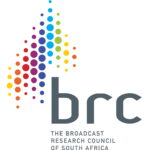
According to a survey of time use conducted by Stats SA, South Africans spend roughly 121 minutes per day participating in meetings, which amounts to over 10 hours a week – a quarter of the average 40 hour work week. This wouldn’t be a problem if all these hours spent in meetings were somewhat productive or resulted in billable action down the line. However, due to vague agendas, misaligned objectives or a general lack of focus among attendees, this is seldom the case.
 Daniel Marcus, CEO of Magnetic Software – a business intelligence platform designed to enhance efficiencies and profits for marketing agencies – says that while meetings will always have their place, business owners need to actively identify which of these meetings are effective in their purpose and minimise those which tend to be counterproductive.
Daniel Marcus, CEO of Magnetic Software – a business intelligence platform designed to enhance efficiencies and profits for marketing agencies – says that while meetings will always have their place, business owners need to actively identify which of these meetings are effective in their purpose and minimise those which tend to be counterproductive.
“Meetings have become prevalent fixtures in today’s organisational culture, particularly within client service and project-driven business models. However, when teams are calling meetings to prep and plan for future meetings, something needs to give.”
Marcus offers the following five helpful tips to having fewer, more effective meetings and arriving at better, more informed decisions.
- Stick to the agenda
A prerequisite for any meeting, an agenda sets out clear expectations and objectives for what the meeting will entail, including time allotments for how long each of these objectives should take. The agenda should be sent out to attendees before the meeting, along with any preparation materials and should contain a finite number of items to be discussed and resolved. At the beginning of the meeting, the facilitator can then briefly outline the main goal of the meeting to ensure that it is achieved.
- Keep it short
The most common meeting length is between 30 minutes and an hour, which is likely due to the fact that 30 and 60 minute time slots are suggested on most calendar apps. However, Parkinson’s Law is interesting in this regard as it suggests that work expands so as to fill the time available for its completion. This means that if a full hour has been allotted to a meeting, it is likely to take up the full hour, regardless of whether it could be completed in a shorter amount of time.
A helpful strategy to avoiding this trap is to determine how much time a meeting will take, and then cutting 5-10 minutes off the allotted time. During the meeting, it can be helpful to display a timer for everyone to see to ensure agenda points are kept on track and within their allotted times.
- Limit attendee numbers when possible
Unless a meeting involves an entire staff or team, there is no need to include everybody. The inclusion of unnecessary attendees often results in a meeting being lead off-track and can actually prove to be a greater distraction to those who really need to be there. When facilitating a meeting, it can be helpful to differentiate between required and optional participants, so that optional participants will only attend if they have an active interest in what’s on the agenda.
- Inhibit multitasking
When participants are checking their email, playing on their phones or attempting to do other work, it is very unlikely that a meeting will achieve its desired objectives. Where possible, prevent employees from multitasking during meetings by having a “no electronics” and opt for video conferences over telecoms to improve accountability.
- Implement an effective work flow management system
Implementing an all-in-one agency management system that is built specifically for productivity will drastically reduce a business’ reliance on meetings. With an effective management system, every project can be efficiently monitored, managed and delivered, eliminating the need for constant status meetings.
About Magnetic Software:
Magnetic is a cloud-based business intelligence platform designed to enhance efficiencies and profits for businesses operating in the marketing and advertising industry. It combines all essential workflow management capabilities into a single easy-to-use system: account management, sales CRM software, business development, traffic management, project management software, time tracking, billing, HR management and resource scheduling. Visit http://www.magnetichq.com/ for more information.
- MRF Unveils Latest MAPS® Data - 20th February 2025
- The BRC announces changes to the board and updates for 2025 - 17th December 2024
- Top 50 DSTV TV programmes – October 2024 - 12th November 2024





